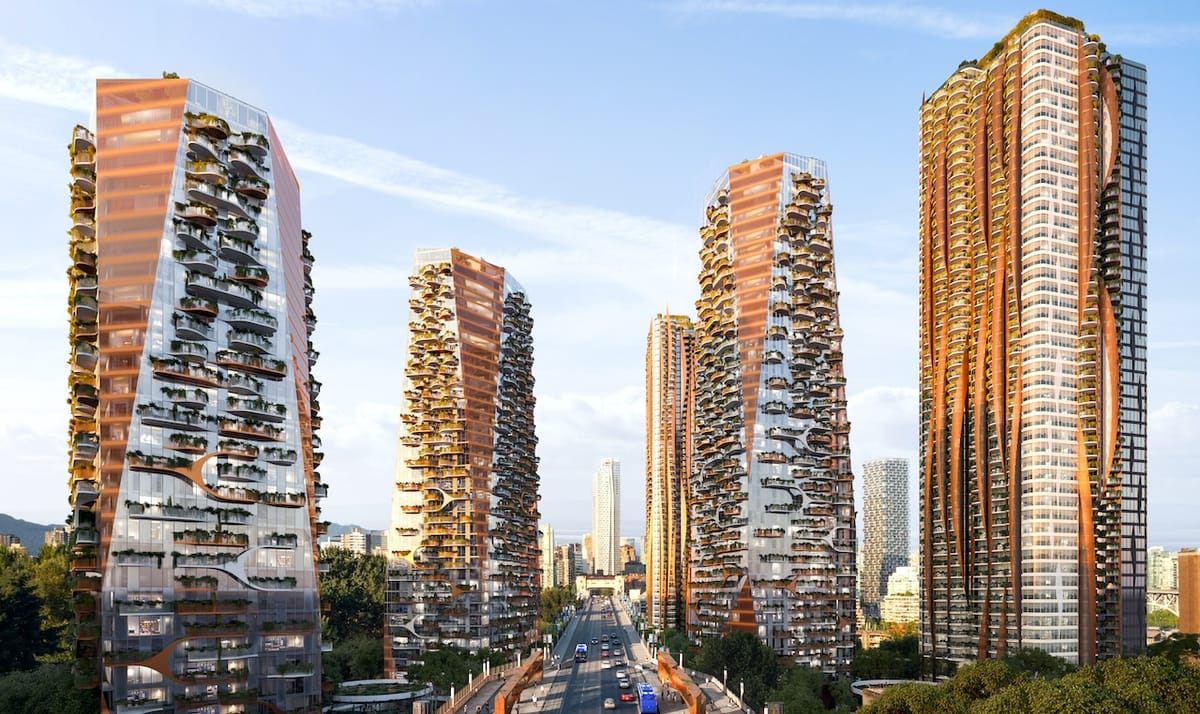living futures

The Duwamish Solidarity Group sends a newsletter to Real Renters about once a month. Their email in February opens with, “One of the most frequent requests made of the Duwamish Tribe is an invitation to offer a land acknowledgment.” They share a performance by Duwamish Tribal members Ken Workman and Maggie Cooper. “In the opening,” they write, “Ken asks ‘How am I to acknowledge I’m on my own land?'” Later, they share a resource for anyone who wants to create their own. I imagine they and other tribes receive many similar requests for acknowledgment.
The Duwamish Solidarity Group also shared a poem called, BEYOND “Thank you for the real estate”. It’s by the research and artist collective Gesturing Towards Decolonial Futures. The poem begins like this:
“It has become common in what is known as Canada today, to hear land acknowledgements by non-Indigenous people that include sentences like “It is my pleasure and privilege to live, work and play in this territory.” As Indigenous (FNMI) peoples, we find this unsettling and have created this poem in response.”
As I read the poem, I remembered a quote by Joseph Pierce (I shared this before but it bears repeating):
“The problem with land acknowledgments is that they are almost never followed by meaningful action. Acknowledgment without action is an empty gesture, exculpatory and self-serving. What is more, such gestures shift the onus of action back onto Indigenous people, who neither asked for an apology nor have the ability to forgive on behalf of the land that has been stolen and desecrated. It is not my place to forgive on behalf of the land.”
Land acknowledgments in their current form are easy: easy to write, easy to deliver. They were never supposed to be the end point. One might think of them more like an invitation. But even then, an invitation from whom? To whom? What do they really compel us to do?
My “privilege and pleasure” came at unspeakable costs to entire populations. I’m horrified by this pattern I see throughout history. It’s a pattern that continues today in Palestine and the Democratic Republic of Congo. These events will not stop until we interrupt them.
decentering ourselves
Gesturing Towards Decolonial Futures further writes,
When you acknowledge the Land
Please centre those who have not
Forgotten its sacredness
And who have paid a high price
For honouring their obligations towards it
My first instinct is to center myself in the problems above. I want to write or talk about how I feel about them. I think for a lot of people in dominant culture, that centering feels natural. But how does that help anyone? If I feel terrible about it, what will I do with that discomfort? A request to decenter myself means to keep myself out of the story. Why?
Words are imperfect. Even understanding is imperfect. My instinct is to tell a story that conjures tragedy, so I’ll do the opposite. Imagine you’ve just eaten the most incredible ice cream cone you’ve ever had. You can give me a detailed description of how you felt eating that ice cream. I can repeat that description, word for word, back to you. We may have spoken the exact same words. But we still have different meanings for what we’ve both said.
If I center myself, I could write about how I feel living on this land. But in what way does that center the people who lost so much? The truth is, I don’t need to write about how I feel. I need to write about what I understand. As Stefan Ravalli writes for IOSM, “Everyone wants to be understood on their own terms, not filtered through yours.”
indigenous futures
In the Squamish Nation rises a new future called Sen̓áḵw, or “The place inside the head of False Creek.” It lies between Highway 99 and Burrard Street in the heart of Vancouver, B.C. This is the ancestral land of the Squamish people who have lived in the area since time immemorial. As Vancouver grew, British Columbia annexed the 80 acres of land “set aside” for the Squamish. Settlers expelled the Squamish people, moving them and their belongings out by barge. The Squamish Nation spent centuries fighting for their rightful return. In 2003, the Federal Court of Canada returned 10.48 acres of this land to the Squamish Nation in a settlement.
In 2022, the Squamish Nation announced they were building 11 towers on their land. The concept art is beautiful! Squamish land and this project are not subject to B.C. or Vancouver design/construction requirements. Still, the space will be energy efficient and carbon neutral. When complete, the complex will feature 7.5 acres of public space and offer 6,000 new housing units for the community and tribal members.
I’m in awe about the scale, the grandeur, and the imagination of such a place. But some local neighbors have showed up in futile protest against the project. Some even claim that the development isn’t indigenous enough. I see them trying to filter this bold project through their own understanding. They’re mad that their concept of indigeneity doesn’t align with that of living native people. Author Michelle Cyca writes, “To Indigenous people themselves, though, these developments mark a decisive moment in the evolution of our sovereignty in this country. The fact is, Canadians aren’t used to seeing Indigenous people occupy places that are socially, economically or geographically valuable, like Sen̓áḵw.” Protests against a nation making decisions for their people shouldn’t surprise the majority. They may not be used to recognizing the autonomy that native people have. But they are their own people. This is their land. They get to decide how to use it.
The invitation of a land acknowledgment opens the door for real repair. We have to move past discomfort and centering ourselves if we are to begin that repair. When the future is waiting, mere acknowledgment isn’t enough.



